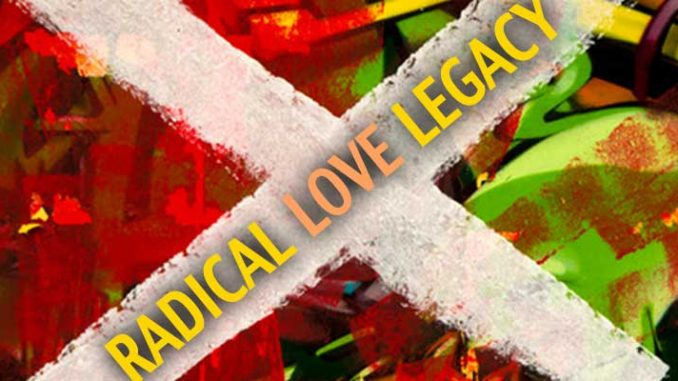
Imam was suspected as the mastermind of a terrible bombing in Sari Club and Paddy’s Café in Bali, which caused the deaths of more than 200 people. Seeing him on television made many angry.
The unfortunate thing is that he is not alone. Amrozi, Mukhlas, and other young men claimed that their bombing was part ofjihad and was appropriate to Islam. Because of this, the perception of Islam as a religion that is full of violence, or worse, that is terrorist, is growing. But is it?
In a café inside a bookshop in Central Jakarta, Ening Nurjanah, 30, explained what Islam was for her. “Allah is all-loving.” She criticized the bombing. Wearing a stylish blouse with one open button, she looked trendy and modern, far from the image of Imam, who is scaring many Muslims. Ening can often be seen in cafés with her foreign friends.
“I don’t do any ritual in Islam anymore, except for the tithe,” she said. This woman, who worked as a representative of Oktagon, a gallery in Central Jakarta, just wants to be a simple Muslim. For her, the most important thing is that she doesn’t hurt anyone. Ening changed her attitude toward Islam after she left home and started to work.
Talking about her very religious family, she said her father always beat her if she did not do sholat (pray five times a day: 4:30 a.m., 12 noon, 3 p.m., 6 p.m., and 7 p.m.) Ening even joined a small group that had a weekly discussion on religion. When she left home, Ening left the meetings and rituals as well. “I felt free,” she said, “free from the pressure from my father to be religious.”
Legacy from Parents
Many young Muslims feel Islam is a legacy from their parents. Like others, Ening’s parents forced her to do all the rituals. She grew up thinking that Islam is the right religion. Many other young Muslims still don’t know exactly what Islam is, even as they get emotional when someone says something bad about their religion.
Ari Kusmiyasih, 18, a first year student at the Institute of Social and Political Science, said that she gets “really angry if someone says Islam is a religion of terror.” Ari admitted to not being a good Muslim. She doesn’t know very well what Islam is. “It is a kind of perfect religion,” Ari said without elaboration. Like Ening, Ari does not pray five times a day, just when she goes to bed. Ari is one among millions of young Muslims in Indonesia who grew up in the café and mall era.
Of course, not all young Muslims are like Ening or Ari. Many wake up early and pray. They read the Quran and fast not only in Ramadan (the fasting month) but also on Mondays and Thursdays. They attend regular discussions on religion. Many girls and women wear jilbab. Some young Muslims go for jihad in the extreme, to fight the enemy or oppressor. There are the radical and militant Muslims.
According to Azyumardi Azra, a scholar of Syarif Hidayatullah Islamic University in Jakarta, radical Muslim groups are growing, coming from the mainstream represented by Nahdlatul Ulama and Muhammadiyah. These organizations are the largest Muslim groups in Indonesia, the former led by former President Abdurrahman Wahid and the latter by Speaker of Parliament Amien Rais.
But radical does not always mean violent.
Face of Love
“I don’t deny that Islam is split into many groups,” said Ludi Cahyana, an activist of Lembaga Dakwah Islamiyah Indonesia(LDDI, or Indonesian Islamic Proselytizing Organization). LDDI, a radical organization, was banned because it was said to be heretical. This 26-year-old activist said that some groups are radical while others are moderate, even liberal.
Despite the differences, many agree that Islam has one important principle. “Islam is God’s mercy for everyone,” Ludi explained, adding that this concept calls for respect for other religions. “As a majority in Indonesia, it is compulsory [for Islam] to protect minority groups.” Islam, he pointed out, upholds the principle of love and is not a religion that hurts others. The same opinion was expressed by Said Abdul Syukur, one of the leaders of Gerakan Pemuda Anshor (Anshor Youth Movement), a youth group under Nahdlatul Ulama.
“Islam is a savior,” said Umi Atmo Wijoyo, an alumnus of the Indonesian Islamic University inYogyakarta. “It saves us from evil deeds.” She wants to get an advocate license to help people who cannot help themselves. Umi is also an activist who defends many Afghanistan “alumni” – those who have gone to Afghanistan to help Afghans fight Soviet soldiers. Recently, Indonesian police arrested some Afghanistan alumni for suspected involvement in bombings. She has accompanied the wives ofAfghanistan activists to the police, Parliament office, and other places to seek justice for their husbands.
Selma Widhi Hayati, 32, has been working in several non-governmental organizations for almost eight years. She joined the Legal Aid Institute in Surabaya, East Java, and helped powerless laborers, whether Muslim or not. She moved to Hong Kong and helped migrant workers. She went on to Dili, Timor Leste, a country with a Catholic majority, to help in development programs under the umbrella of Oxfam. “Islam has taught me humanitarian values as well as other religions. Helping voiceless and marginalized people – I do not care what their religion is – is an obligation for Muslims.”
For young Muslims like Ening, Ludi, Umi, or Selma, Islam is far from being a religion of terror. They show that Islam has a different face – a face of love.
Purwani Diyah Prabandari / Newsbreak
Kyoto Review of Southeast Asia. Issue 5 (March 2004). Islam in Southeast Asia
